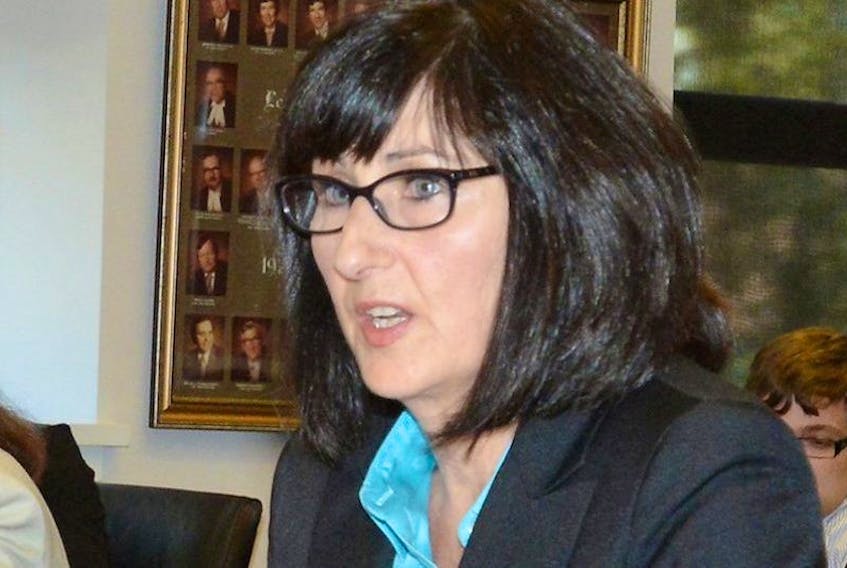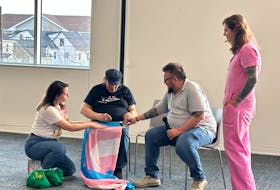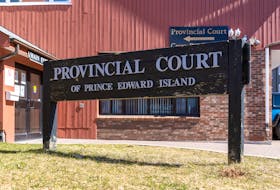Narcotics, addictive sedatives and other controlled drugs are not being properly controlled, tracked or disposed of in provincial nursing homes, which could see them ending up in the wrong hands.
These were the findings of the province’s auditor general Jane MacAdam, as part of her 2018 annual report, delivered Thursday in Prince Edward Island.
MacAdam performed a special audit of medication controls dispensed through the province’s institutional pharmacy program for residents of long-term care facilities. Her audit focused specifically on how narcotics, benzodiazepines and other controlled drugs are dispensed and controlled.
“These drugs are high-risk drugs, they are a leading public health and safety concern, and they are addictive and they pose a risk to patient safety,” MacAdam told reporters Thursday.
“There’s a risk of unidentified diversion with these types of drugs,” she said.
Diversion could mean the drugs are stolen, used inappropriately or end up being sold on the street.
Overall, MacAdam found narcotics and controlled drugs in nursing homes were not adequately controlled.
Narcotics and benzodiazepines administered by staff to nursing home residents were not tracked, nor was it reported what happens to them when they go unused.
These drugs should be counted on a monthly basis, to ensure no pills go missing. MacAdam found narcotics such as opioids are being properly counted monthly, but benzodiazepines are only counted yearly.
She also found three files where adjustments to medical records involving narcotics and benzodiazepines led to an unexplained shortage, totalling 191 sedative pills. In the case of any shortages, pharmacy staff are required to notify Health Canada within 10 days. This did not happen in the case of these 191 pills.
MacAdam further found improper controls related to the use of a “ward system” for dispensing narcotics in some nursing homes in P.E.I.
Narcotics are dispensed by the provincial pharmacy in blister packs labelled for each individual resident at a long-term care facility, with no more than a 35-day supply at a time.
But some wards in different nursing homes are dispensing narcotics to several residents using a communal, non-labelled blister package.
MacAdam consulted with medical experts from other jurisdictions as part of her audit, and they flagged this ward system as being problematic.
Health P.E.I. staff explained this system is used it to limit the number of narcotics held in the ward at any given time for security purposes. But MacAdam says there are other options to address this, such as increasing the number of deliveries of drugs to nursing homes.
“With the ward stock system that they have, it limits the ability for the pharmacist to provide effective oversight,” she said Thursday.
The tracking of unused pills was another area of concern flagged by the AG as part of her audit.
Health P.E.I. has a policy for the return of expired medications, but nothing is in place to track the return of meds that go unused.
“This increases both the risk to patient safety and the risk of unidentified diversion.”
MacAdam further found Health P.E.I. was not disposing of expired or unserviceable narcotics and controlled drugs as required by federal regulation.
Provincial health authorities are supposed to “de-nature” drugs when disposing of them, to render them unusable. Health P.E.I. has contracted a third party to pick up and dispose of these medications, but the contractor is not licensed by Health Canada. This means the provincial pharmacy is not in compliance with federal regulations. MacAdam noted Health P.E.I. has since taken over de-naturing these drugs to comply with the law.
The auditor general issued 15 recommendations for changes to improve the control and tracking of addictive meds in nursing homes.
“Given the volume and inherent risks associated with these drugs, it is important that controls are implemented to protect patient safety and to reduce the likelihood of misuse and/or diversion,” MacAdam said in her report.
Health P.E.I. says it has already implemented an automated dispensing cabinet project to improve the security and tracking of medications and that action has been taken or will be taken to address all the AG’s recommendations.
“We have also taken steps to address the disposal of narcotics and controlled pharmaceuticals, ensuring that we disposes of all pharmaceuticals in accordance with applicable provincial and federal legislation,” said Health P.E.I. in a statement to The Guardian.
“We are very much committed to increasing our accountability and further ensuring the safety of our clients and all Islanders.”
Twitter.com/GuardianTeresa









